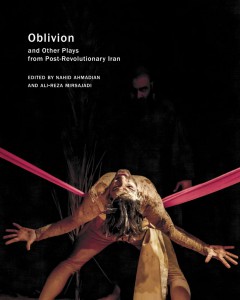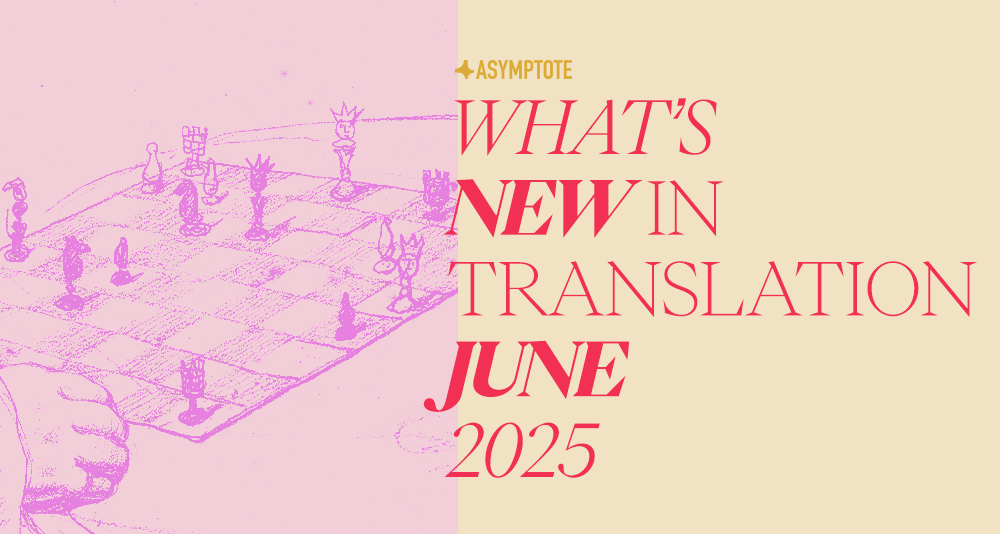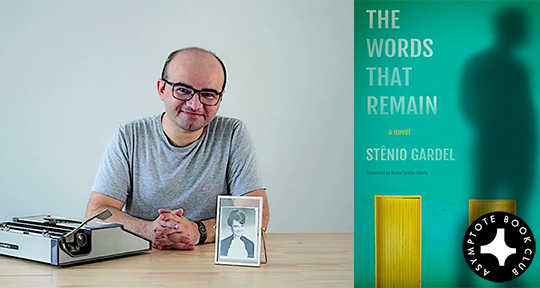This month, we’re delighted to be bringing twelve brilliant titles from eleven different countries. Find here the novelization of a famous chess match that reveals the greater geopolitical game playing us all; a summery fiction that melds the structures of nature and human architecture; a poetry collection rendering tender portraits of working-class women; a lyrical rewriting of a remarkable nun-turned-conquistador’s New World adventures; and so much more.

Oblivion: and Other Plays from Post-revolutionary Iran, edited by Nahid Ahmadian and Ali-Reza Mirsajadi, translated from the Persian by Nahid Ahmadian, Ali-Reza Mirsajadi, and Hesam Sharifian, Seagull Books, 2025
Review by Henry Gifford
In order, the five plays included in Oblivion: and Other Plays from Post-revolutionary Iran are set in Arabia in the fifth century AD (The Sacrifice of Senemar by Bahram Beyzaie); China in the second century BC (Oblivion by Hamid Amjad); Spain in the twentieth century (Dance of Mares by Mohammad Charmshir); somewhere (per stage directions and blank spaces left in the dialogue) in the city you’re in, on the day you’re reading it (The Child by Naghmeh Samini); and a laundromat in Los Angeles at three in the morning (Bird of Dawn by Sepideh Khosrowjah). Their narratives are of a hubristic yet indecisive king and his palace; imperial bloodshed and familial betrayal; sex and mariticide; an infant born on a migrant raft, protected at the border by three women who all deny being his mother; and three generations of Iranian immigrants, each with romantic trouble and divided identities. Some are epic, and others are everyday. None of them are set in ancient Persia or modern Iran, and only the first and last are explicitly about Persians or Iranians.
Yet these are, in fact, plays from the same country over the same quarter-century, from 1995 to 2019. The diversity of their settings and scale is a wise editorial decision intended to highlight the diversity of theater in Iran, but it also reflects a practical need of addressing contemporary, local problems obliquely under a censorship regime. What is more interesting is the collection’s consistency, and in particular the nonchronological approach taken within almost all of the plays. Oblivion, for example, begins with two siblings going to meet their adoptive brother after years apart; the encounter then extends over the course of the play as a frame to the story of their lives and their parents’, acted out in shadows on a scrim behind them. The formal blending extends this sense of collapsed time; as the editors’ introduction explains in great detail, shadow puppetry (khayāl-bāzi) is an old Persian form, here embedded within a more modern, European-inflected mode. The other plays are similarly mixed—traditional aspects and motifs cohering with contemporary themes and styles.
Every nation has history, but I wonder, reading the plays of Oblivion, if there is something about Iran—a young nation of an ancient culture—that has made its past more palpable, fraught, and vividly present. READ MORE…


